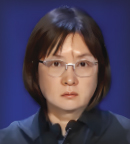The anti-CD30 antibody-drug conjugate brentuximab vedotin is a standard of care for certain types of lymphomas, including classical Hodgkin lymphoma in combination with multiagent chemotherapy. Brentuximab vedotin has also shown efficacy and safety in combination with lenalidomide and rituximab in heavily pretreated patients with relapsed/refractory diffuse large B-cell lymphoma (DLBCL), who typically have poor outcomes. ECHELON-3 was designed to compare brentuximab vedotin in combination with lenalidomide and rituximab vs placebo plus lenalidomide and rituximab in the third-line setting for patients with relapsed/refractory DLBCL, regardless of CD30 expression. An interim analysis of the phase III ECHELON-3 trial was reported at the 2024 ASCO Annual Meeting.1
Median overall survival was 13.8 months with the triplet combination vs 8.5 months with a placebo plus the doublet, representing a 37% improvement in survival that was statistically significant (P = .0085). Secondary endpoints were also improved with the triplet combination. Median progression-free survival was 4.2 months vs 2.6 months, respectively (P < .0001), and the overall response rate was 64% vs 42%, respectively, with a complete response rate of 40% vs 19%, respectively.
“Brentuximab vedotin plus lenalidomide and rituximab demonstrated a survival advantage in the third-line treatment of DLBCL in a group of patients who reflect real-world practice. This is a promising treatment for patients with relapsed or refractory DLBCL ineligible for, or with disease progression, following hematopoietic stem cell transplant or CAR-T,” said lead author Jeong-A Kim, MD, of the Catholic University of Korea in Suwon.

Jeong-A Kim, MD
Patients with relapsed or refractory DLBCL who are ineligible for or experience disease progression after chimeric antigen receptor (CAR) T-cell therapy or hematopoietic stem cell transplantation have a poor prognosis, Dr. Kim explained. There is a need for novel approaches for these patients.
Study Details
ECHELON-3 was designed to compare the addition of brentuximab vedotin to lenalidomide plus rituximab vs placebo plus lenalidomide and rituximab in the third-line setting. It included 230 patients who were either refractory to or experienced disease progression on CAR T-cell therapy or hematopoietic stem cell transplantation.
Patients had a median of three prior lines of therapy, and about half were refractory to primary therapy. Nearly all had prior anthracyclines and an anti-CD20 antibody. One-third had prior CAR T-cell therapy, 15% had prior bispecific antibody therapy, and 12% had received a hematopoietic stem cell transplant. Patients were excluded if they had prior exposure to lenalidomide or brentuximab vedotin.
Median patient age was 70 to 74, 56% were male, slightly more than half were White, and about 25% were Asian.
Results and Safety
The response rate was 40.2% for the triplet compared with 18.6% for a placebo plus the doublet. Responses were observed in both patients with CD30-positive and CD30-negative disease. In the CD-negative subgroup (32% of the participants), the response rate was 61% vs 38%, respectively. In the CD-positive subgroup (68% of participants), the response rate was 72% vs 50%, respectively. Median duration of response overall was 8.3 months with the triplet vs 3 months with a placebo plus the doublet.
No new safety signals were reported. A higher incidence of grade 3 or higher treatment-related adverse events was observed with the triplet vs the doublet plus placebo (88% vs 77%). The rates of peripheral neuropathy of any grade were greater with the triplet (31% vs 24%, respectively). Treatment-related death occurred in 12% and 8%, respectively. Deaths in the triplet arm were primarily the result of peripheral neuropathy and infections from myelosuppression.
Expert Point of View
Invited discussant of the ECHELON-3 trial, Peter Riedell, MD, of the University of Chicago, shared these comments: “The triplet combination of brentuximab vedotin plus lenalidomide and rituximab may represent an encouraging treatment for patients with relapsed or refractory diffuse large B-cell lymphoma [DLBCL] who are ineligible for chimeric antigen receptor [CAR] T-cell therapy, transplantation, or bispecific antibodies because of factors such as access issues, comorbidities, and prior treatment exposure.”

Peter Riedell, MD
Dr. Riedell acknowledged that both CAR T-cell therapy and hematopoietic stem cell transplantation are effective therapies in the relapsed or refractory setting. However, patients often do not have access to them because of numerous factors, including logistics.
“Among patients who receive CAR T-cell therapy, 60% do not achieve a durable treatment response. The treatment of relapsed or refractory DLBCL following CAR T-cell therapy failure is an unmet need,” he continued.
In ECHELON-3, responses to the triplet were observed in both CD30-positive and CD30-negative subsets. In addition, the overall survival benefit was observed in meaningful high-risk subsets, including those with a high International Prognostic Index score, advanced age, non–germinal center B-cell phenotype, and with prior exposure to CAR T-cell therapy.
Dr. Riedell cautioned that the triplet regimen was associated with greater toxicity. “We saw a higher incidence of grade 3 or higher treatment-emergent adverse events. Additionally, there was a higher burden of hematologic toxicity, despite the requirement for growth factor support, and also a higher incidence of grade 3 neuropathy,” he added.
DISCLOSURE: Dr. Kim reported no conflicts of interest. Dr. Riedell has served as a consultant or advisor to AbbVie, ADC Therapeutics, BeiGene, Bristol Myers Squibb/Celgene, CVS, Genentech/Roche, Genmab, Intellia Therapeutics, Kite, Nektar, Novartis, Pharmacyclics/Janssen, and Sana Biotechnology; and has received institutional research funding from Bristol Myers Squibb/Celgene, Calibr, Cellectis, CARGO, CRISPR Therapeutics, Fate Therapeutics, Genentech/Roche, Kite, Novartis, Tessa Therapeutics, and Xencor.
REFERENCE
1. Kim JA, Hahn U, Kim WS, et al: Brentuximab vedotin in combination with lenalidomide and rituximab in patients with relapsed/refractory diffuse large B-cell lymphoma: Results from the phase 3 ECHELON-3 study. 2024 ASCO Annual Meeting. Abstract LBA7005. Presented June 1, 2024.

